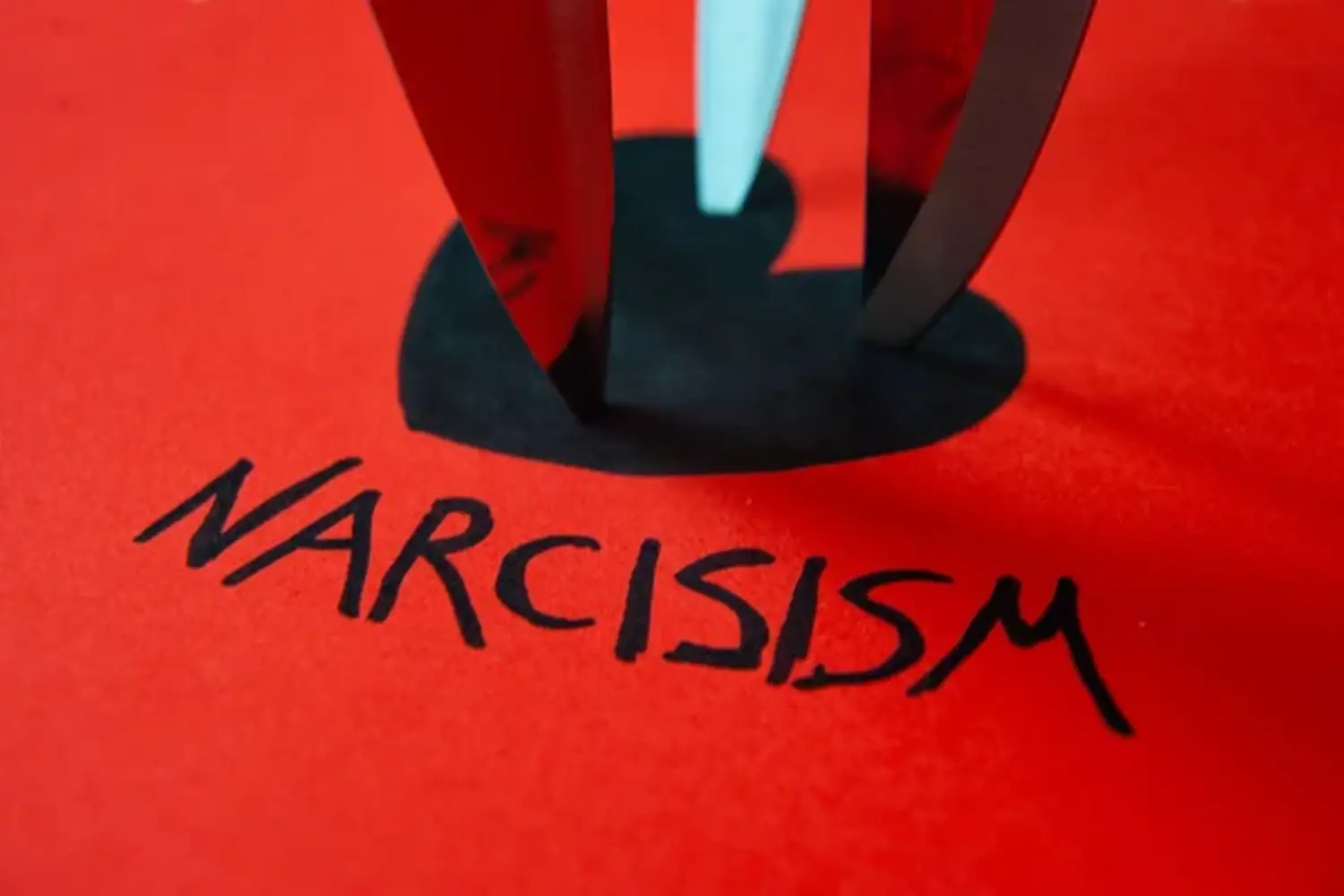In the intricate tapestry of human behavior, certain individuals possess an array of captivating and enigmatic traits that set them apart from the ordinary.
Among these intriguing personas, one particularly beguiling archetype stands out—the narcissist. Unveiling the depths of his narcissistic nature requires a discerning eye and a keen understanding of the defining characteristics that compose his complex personality.
From a sense of entitlement that knows no bounds to an insatiable thirst for admiration and validation, the key traits that reveal his narcissistic nature permeate every facet of his being.
Delving into the inner workings of the narcissistic mind, we shall encounter grandiosity and self-importance like never before, confronting the duplicity that masks vulnerability and an insidious thirst for control.

Key Traits That Reveal His Narcissistic Nature
Narcissism is a complex personality trait characterized by an inflated sense of self-importance, a constant need for admiration, and a lack of empathy toward others.
Individuals with narcissistic tendencies often exhibit specific behaviors and thought patterns that set them apart from the general population. Understanding these key traits can help identify and navigate relationships with narcissistic individuals.
Recognizing the key traits that reveal a person’s narcissistic nature is crucial for maintaining healthy boundaries and protecting oneself from potential harm in relationships.
Brace yourself for an illuminating expedition through the labyrinth of narcissism, as we encounter the key traits that reveal his narcissistic nature—traits that might just be closer to home than we think.
signs of telepathic communication
10 Key Traits That Reveal His Narcissistic Nature
Understanding Narcissism
A. Overview Of Narcissistic Personality Disorder (NPD)
Narcissistic Personality Disorder (NPD) is a mental health condition that falls within the cluster of personality disorders. It is characterized by a pervasive pattern of grandiosity, an excessive need for admiration, and a lack of empathy for others.
While some degree of self-confidence is considered normal, individuals with NPD display a distorted and exaggerated sense of self-importance that affects their thoughts, emotions, and behaviors.
Narcissists often have an insatiable desire for attention and validation, seeking constant admiration and praise from others. Underneath their facade of self-assurance lies a fragile self-esteem, making them highly sensitive to criticism and rejection.
This can lead to interpersonal difficulties and a tendency to react with anger or hostility when their sense of superiority is challenged.
B. Differentiating Between Healthy Self-Esteem And Pathological Narcissism
Healthy Self-Esteem
Healthy self-esteem is a positive and realistic evaluation of one’s abilities and worth. Individuals with healthy self-esteem can appreciate their strengths and accomplishments without diminishing the value of others.
They are also capable of acknowledging their weaknesses and imperfections without feeling threatened or defensive.
Pathological Narcissism
In contrast, pathological narcissism is marked by an excessive and grandiose sense of self-importance. Narcissists have an overwhelming need for admiration and can become preoccupied with fantasies of limitless success, power, beauty, or love.
They cannot often recognize their flaws or accept constructive criticism, as their fragile ego cannot tolerate any perceived threats to their self-image.
C. Impact Of Narcissism On Interpersonal Relationships
Lack Of Empathy
Narcissists struggle to empathize with others’ emotions and experiences, making it difficult for them to truly connect with people on an emotional level.
They may appear charming and charismatic initially, but their self-centeredness becomes evident over time, leading to shallow and one-sided relationships.
Manipulative Behaviors
Narcissists are skilled manipulators who use charm, flattery, and deceit to control and exploit others for their benefit. They may engage in gaslighting, which involves distorting reality to make their victims doubt their perceptions and judgments.
Boundary Violations
Because of their sense of entitlement, narcissists often disregard others’ boundaries and personal space. They may intrude into others’ lives, make unreasonable demands, and show a lack of respect for individual autonomy.
Intense Need For Admiration
Narcissists constantly seek validation and attention, leading them to surround themselves with individuals who feed their egos. However, this reliance on external validation can result in unstable relationships, as they often discard those who no longer serve their needs.
Destructive Conflict Resolution
Narcissists tend to react defensively to any perceived criticism or disagreement, leading to conflicts that escalate quickly. They may resort to aggression, belittlement, or emotional manipulation to maintain control and dominance in arguments.
Emotional Rollercoaster
While narcissists may display a confident exterior, they often struggle with emotional instability and insecurity. Their emotional highs and lows can create unpredictable and tumultuous relationships.
The Narcissistic Mindset
A. Grandiosity And An Inflated Sense Of Self-Importance
At the core of the narcissistic mindset lies grandiosity—an excessive and unrealistic belief in one’s self-importance and superiority.
Narcissists perceive themselves as special, unique, and deserving of admiration and privileges beyond what is considered reasonable.
They often exaggerate their accomplishments, talents, or experiences to maintain an image of superiority, even if it means distorting the truth.
This grandiose self-view serves as a defense mechanism to mask deep-seated feelings of inadequacy and vulnerability.
By projecting an inflated image of themselves onto others, narcissists attempt to shield their fragile self-esteem from potential threats or criticism.
B. Constant Need For Admiration And Validation
The narcissistic mindset revolves around an insatiable thirst for attention, admiration, and validation from others. Narcissists seek external praise and approval as a means of validating their self-worth and reinforcing their grandiose self-image.
They crave admiration and may engage in attention-seeking behaviors to ensure they remain the center of attention.
The constant need for validation can lead narcissists to engage in self-promotion, seeking out situations where they can showcase their perceived greatness and receive the admiration they crave.
However, as this need becomes increasingly demanding, it can strain relationships as others may struggle to meet their unquenchable appetite for admiration.
C. Lack Of Empathy And Emotional Unavailability
One of the most striking traits of the narcissistic mindset is the profound lack of empathy toward others. Narcissists find it challenging to genuinely understand or connect with the emotions and experiences of those around them.
They are primarily focused on their own needs, desires, and achievements, which leaves little room for considering the feelings or perspectives of others.
Empathy is a critical component of healthy relationships, and the absence of it in narcissists can lead to strained interactions and emotional distance.
Their inability to empathize can cause significant harm to those close to them, as they may dismiss or trivialize the emotions and struggles of others, leading to feelings of invalidation and neglect.

D. Fragile Self-Esteem And Hypersensitivity To Criticism
Paradoxically, behind the facade of grandiosity lies a fragile self-esteem that is easily wounded by criticism or perceived slights.
While narcissists may present themselves as self-assured and invulnerable, they are remarkably sensitive to any form of feedback that challenges their self-image.
Even constructive criticism can be met with defensiveness or aggression, as it threatens their illusion of perfection.
To protect their delicate self-esteem, narcissists may resort to various defense mechanisms, such as denial, blame-shifting, or devaluation of the person providing the criticism.
Their hypersensitivity to criticism can lead to a vicious cycle of self-aggrandizement and dismissing others’ opinions, further isolating them from meaningful connections.
Recognizing Key Narcissistic Traits
A. Love Bombing And Idealization
1. Excessive Flattery And Charm In The Initial Stages
During the initial phase of a relationship, narcissists often deploy an array of flattering remarks, compliments, and gestures of charm.
They seek to create an illusion of perfection, making the targeted individual feel special and deeply valued. This excessive flattery serves to disarm and captivate the partner, making them more receptive to the narcissist’s advances.
2. Showering The Partner With Attention And Affection
Love bombers inundate their partners with intense attention and affection, going above and beyond to cater to their needs and desires.
This overwhelming display of affection can be intoxicating and may leave the partner feeling deeply connected and cared for.
However, it is essential to be mindful of the underlying motivation, as the narcissist’s actions are driven by a desire to establish control and dependency.

3. Moving The Relationship Too Quickly, Idealizing The Partner
Narcissists often push the relationship to progress at an accelerated pace, idealizing their partner as the perfect match. They may talk about a future together early on, creating a false sense of intimacy and commitment.
This idealization can lead the partner to feel adored and cherished initially, but it is essential to remain cautious of the rapid escalation, as it may be a tactic to engender emotional dependence.
B. Devaluation And Intermittent Reinforcement
1. Fluctuating Between Affection And Withdrawal
Once the love bombing phase begins to wane, narcissists switch to the devaluation stage. They start fluctuating between showering affection and withdrawing attention.
This inconsistent behavior keeps the partner off balance, seeking the approval and validation they received during the idealization phase. The partner may feel confused and desperate to regain the affection they once experienced.
2. Emotional Manipulation And Punishment For Perceived Wrongdoings
During devaluation, narcissists resort to emotional manipulation and punishment to assert control over their partner. They may engage in gaslighting, projecting blame onto the partner, and creating guilt or shame to maintain dominance.
Any perceived wrongdoing, even if minor, may trigger an intense reaction from the narcissist, leaving the partner feeling emotionally trapped and vulnerable.
3. Creating Confusion And Emotional Dependence On The Narcissist
The fluctuation between love and withdrawal creates a sense of emotional dependence on the narcissist. The partner becomes conditioned to seek validation and approval from the narcissist, even if it comes sporadically.
This intermittent reinforcement strengthens the partner’s attachment to the narcissist, making it difficult to break free from the toxic cycle.
C. Gaslighting And Manipulation Tactics
1. Distorting Reality And Making The Partner Doubt Their Perception
Gaslighting is a manipulative tactic in which the narcissist distorts reality and undermines the partner’s sense of perception. They may deny events or conversations that occurred, leading the partner to question their memory and sanity.
By causing the partner to doubt their reality, the narcissist gains control over the narrative, making it easier to maintain dominance in the relationship.
2. Blaming The Partner For The Narcissist’S Mistakes Or Flaws
To avoid taking responsibility for their actions, narcissists often shift blame onto their partners. Even when the narcissist is at fault, they will find ways to twist the situation and put the blame on the partner.
This manipulation tactic serves to absolve the narcissist of any accountability, leaving the partner feeling guilty and responsible for issues they did not cause.
3. Projecting Their Faults Onto The Partner To Avoid Accountability
Narcissists project their own flaws, insecurities, and negative traits onto their partners, attributing these characteristics to the other person. By projecting their faults, they deflect attention from their own shortcomings, painting the partner as the one with issues.
This manipulation tactic allows the narcissist to maintain a self-righteous image and avoid facing their own faults.

D. Lack Of Empathy And Emotional Unavailability
1. Inability To Understand Or Connect With The Partner’S Emotions
Narcissists lack the capacity for empathy, making it challenging for them to genuinely understand or connect with their partner’s emotions. They may dismiss or trivialize the partner’s feelings, displaying an emotional disconnect that can be hurtful and isolating for the other person.
2. Dismissing The Partner’S Feelings And Needs
In relationships with narcissists, the partner’s emotions and needs often take a backseat to the narcissist’s self-centered desires. They may downplay or ignore their partner’s concerns, viewing them as insignificant compared to their own.
This emotional neglect can lead to feelings of frustration, loneliness, and dissatisfaction in the relationship.
3. Viewing The Partner As An Extension Of Themselves Rather Than An Individual
Narcissists tend to view their partners as mere extensions of themselves, rather than recognizing them as unique individuals with their thoughts, feelings, and desires.
This objectification of the partner can result in a lack of emotional attunement and genuine care, further exacerbating the emotional distance in the relationship.
E. Entitlement And Self-Centeredness
1. Putting Their Needs Above Others Without Regard For Consequences
Narcissists have an overwhelming focus on their own needs, desires, and aspirations, often prioritizing them above all else. Their self-centered nature leads them to act without considering the impact of their actions on others.
They may manipulate or exploit those around them to achieve their goals, even if it means causing harm or inconvenience to others.
This self-centeredness can manifest in various ways, such as expecting others to cater to their wishes, disregarding the feelings and well-being of those close to them, and neglecting responsibilities that don’t align with their interests.
The lack of empathy for others’ perspectives and needs can create significant challenges in maintaining healthy and balanced relationships.
2. Expecting Special Treatment And Privileges
Narcissists firmly believe that they are exceptional and deserving of special treatment and privileges that others do not merit.
They may demand preferential treatment in various contexts, such as expecting lavish gifts, wanting exclusive attention, or seeking special recognition for their achievements, regardless of their actual significance.
This sense of entitlement is rooted in their grandiose self-image, which leads them to believe that they are more deserving and important than others.
They may exploit their charm and charisma to manipulate people into fulfilling their demands, further reinforcing their belief that they are entitled to exceptional treatment.
3. Exploiting Others For Personal Gain Or Validation
Narcissists are skilled manipulators who exploit the vulnerabilities of others to serve their own needs and desires.
They may use charm, flattery, and manipulation to gain favor and control over people. They often surround themselves with individuals who provide them with constant admiration and validation, bolstering their fragile self-esteem.
Narcissists may form relationships solely for personal gain, viewing others as tools to fulfill their objectives. They may use their partners, friends, or colleagues to boost their social status, obtain resources, or meet their emotional needs.
However, once the other person’s utility diminishes or their expectations are not met, the narcissist may discard them without remorse.

V. The Impact On Relationships
A. Emotional And Psychological Consequences
1. Diminished Self-Worth And Self-Esteem In The Partner
Narcissists often engage in tactics like gaslighting, belittlement, and emotional manipulation, which can severely damage the partner’s self-worth and self-esteem.
Constant criticism and devaluation can lead the partner to question their value and capabilities, feeling unworthy of love and respect.
2. Emotional Abuse And Manipulation
Narcissists use emotional abuse as a means of maintaining control over their partners. They may employ tactics like guilt-tripping, blame-shifting, and isolating the partner from their support network.
This emotional manipulation can leave the partner feeling trapped and emotionally vulnerable.
3. Isolation From Friends And Family Due To The Narcissist’S Control
Narcissists often seek to isolate their partners from friends and family, as maintaining control is easier when the partner’s support network is weakened.
This isolation further intensifies the partner’s dependence on the narcissist and makes it challenging to seek outside perspectives on the relationship.
B. Power Dynamics And Control
1. The Narcissist’S Need For Dominance And Control In The Relationship
Narcissists have an insatiable need for power and control in their relationships. They may seek to dominate every aspect of the partnership, making all decisions and exerting influence over the partner’s actions and thoughts.
This power dynamic can be suffocating and disempowering for the partner.
2. The Partner’S Role In Maintaining The Narcissist’S Ego
The partner in a relationship with a narcissist often assumes the role of bolstering the narcissist’s ego and self-esteem. They may constantly seek to please the narcissist and avoid any behavior that could trigger criticism or devaluation.
This constant appeasement reinforces the narcissist’s sense of superiority and entitlement.
C. Cycle Of Abuse And Recurring Patterns
1. Understanding The Repeating Phases In Narcissistic Relationships
Narcissistic relationships often follow a cycle of abuse, which includes the idealization (love bombing) phase, the devaluation phase, and the discard phase.
During idealization, the narcissist showers the partner with attention and affection. In the devaluation phase, the partner is subjected to emotional abuse and manipulation. Finally, in the discard phase, the narcissist may abruptly end the relationship or distance themselves emotionally.
2. Breaking The Cycle And Seeking Healthier Relationship Dynamics
Breaking free from the cycle of abuse in a narcissistic relationship can be challenging but essential for the partner’s well-being. Recognizing the signs of narcissism and understanding its impact is the first step toward seeking healthier relationship dynamics.
Seeking support from therapists, counselors, or support groups can be instrumental in gaining clarity, setting boundaries, and building the emotional strength necessary to move forward.
Vi. Coping Strategies For Dealing With A Narcissist
A. Setting Boundaries And Protecting Yourself
1. Identifying And Establishing Personal Boundaries
Start by identifying your boundaries and what is acceptable behavior for you in a relationship. Understand your limits and what you are willing to tolerate. Setting clear boundaries is essential to protect yourself from emotional manipulation and abuse.
2. Communicating Boundaries Assertively To The Narcissist
Assertively communicate your boundaries to the narcissist, being firm and clear about what you will not tolerate. Narcissists may test your boundaries, so it’s crucial to consistently uphold them and not waver in your stance.
3. Dealing With Potential Backlash For Enforcing Boundaries
Enforcing boundaries may trigger a negative response from the narcissist, such as anger or withdrawal. Be prepared for this potential backlash, and stay firm in upholding your boundaries despite their reactions.
B. Managing Emotional Responses
1. Developing Emotional Resilience To Cope With Manipulation And Gaslighting
Educate yourself about gaslighting and emotional manipulation, which are common tactics used by narcissists. Developing emotional resilience can help you maintain a sense of self and reality in the face of their attempts to undermine your confidence.
2. Seeking Support From Friends, Family, Or Therapists
Reach out to friends, family, or a therapist for emotional support. Having a supportive network can help you process your feelings and gain valuable perspective on the relationship.
C. Seeking Professional Help
1. Individual Therapy For Personal Growth And Healing
Consider individual therapy to address the emotional impact of the relationship and work on personal growth and healing. A therapist can help you build coping strategies, increase self-awareness, and navigate difficult emotions.
2. Couples Therapy For Addressing Relationship Issues (If Willing Partner)
If the narcissist is willing to participate, couples therapy can help address relationship issues and improve communication. However, it’s essential to be cautious, as some narcissists may use therapy sessions as a means of further manipulation.
D. Preparing For The Possibility Of Leaving
1. Evaluating The Feasibility Of Staying In The Relationship
Assess the feasibility of staying in the relationship and consider the impact it has on your emotional well-being. If the relationship is consistently harmful and unfulfilling, exploring the possibility of leaving may be necessary.
2. Safety Planning And Seeking Support Networks
If you decide leaving is the best option, develop a safety plan, especially if you fear potential retaliation from the narcissist. Reach out to friends, family, or support networks for assistance during this challenging transition.
Conclusion
In conclusion, identifying the key traits of narcissism can enable individuals to approach these situations with caution, empathy, and self-preservation.
If someone suspects that they or someone they know might exhibit narcissistic tendencies, seeking professional help and support can be beneficial in fostering healthier relationships and personal growth.

Hi, I’m Jasmine Sophie and welcome to my website!
As a marriage counsellor, I’m passionate about helping people figure out solutions to their relationship issues. While based in Austin and with most of my clients coming from the local area, I believed that there were more people out there who could benefit from my services.
That’s why I decided to set up this webiste; so that I can help even more people break through any difficulties they may be facing in their relationships. In my free time, I enjoy activities like golfing and fishing, as well as just spending time with family. It’s just another way for me to explore my creativity and use it towards helping others.
Experience:
With a wealth of experience in the realm of love and relationships, Jasmine has been transforming lives for over a decade. Her remarkable journey as a licensed psychologist and marriage and couples therapist has allowed her to witness the transformative power of love firsthand. Through her extensive work with diverse couples, she has unraveled the secrets to fostering healthy and thriving partnerships.
Expertise:
Jasmine’s expertise lies in untangling the complex web of relationship dynamics. Whether it’s reigniting the spark in long-term marriages, healing wounds from past relationships, or guiding individuals in their pursuit of true love, Jasmine possesses an unwavering commitment to helping people create fulfilling and joyful connections. Her profound insights and practical strategies have earned her accolades as a trusted authority in the love and relationship sphere.
Education:
Jasmine Sophie’s academic achievements serve as a solid foundation for her exceptional knowledge in the field. She holds a master’s degree in Psychology, specializing in marriage and family therapy. Combining her academic prowess with her empathetic nature, Jasmine seamlessly integrates evidence-based techniques and profound wisdom to empower her readers to navigate the complexities of modern relationships with grace and authenticity.
Join Jasmine Sophie on joypassiondesire.com, and embark on a transformative journey to embrace love, ignite passion, and cultivate relationships that transcend ordinary boundaries. Through her illuminating articles and expert guidance, she will empower you to create a love story that is worthy of celebration and admiration. Get ready to embark on an extraordinary adventure of love and self-discovery with Jasmine Sophie as your trusted guide.